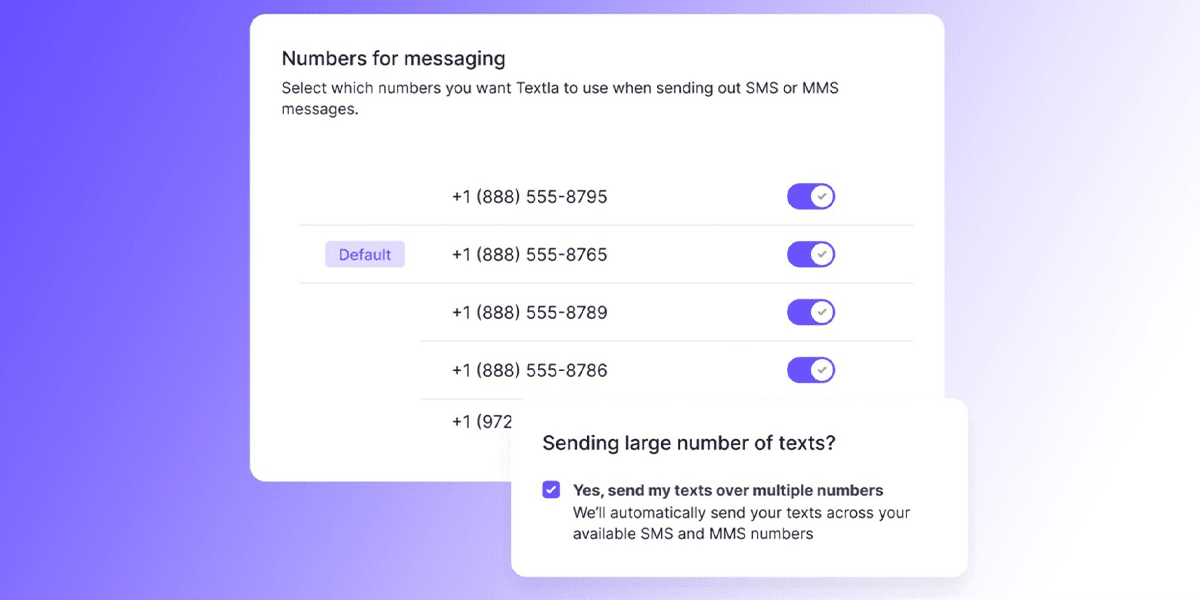SMS marketing, or short message service, is a powerful way for businesses of all sizes to connect directly with customers. This marketing strategy involves sending promotional messages, updates, and alerts through text messages to a mobile device.
Despite having high open rates and vital engagement metrics, SMS marketing comes with its own set of challenges and things to think about. This article will talk about the good and bad points of SMS marketing and how different companies use it in their daily work.
Pros of SMS Marketing
High Open Rates: Compared to email marketing, SMS messages have an incredibly high open rate. More than 90% of SMS messages are read within a few minutes, according to statistics. None of the other marketing channels can match this speed, which makes SMS an excellent way to send messages that need to be read quickly.
Direct Engagement with Customers: SMS lets businesses talk to customers directly on their phones. This direct line of communication makes the brand-consumer relationship more personal, which makes customers more loyal and engage with the brand.
Speed and Efficiency: Sending an SMS is quick and easy so that businesses can get information out quickly. This is especially helpful for promotions ending quickly, essential updates, or reminders that need to be looked at immediately.
Wide Reach: SMS marketing has the potential to reach a vast audience, including those who need internet access or those who prefer not to use social media or email regularly.
Cons of SMS Marketing
Limited Message Length: SMS messages are limited to 160 characters, which can be a significant constraint. This limitation forces businesses to be concise with their messaging, which can sometimes result in oversimplification or lack of clarity.
Costs: While the cost of sending an individual SMS may be low, marketing campaigns that target thousands of customers can become expensive. Small businesses, in particular, need to consider the cost-effectiveness of SMS marketing compared to other channels.
Rules and Compliance: There are strict rules about SMS marketing, like getting clear permission from people who will be receiving marketing messages before sending them. If a brand does not follow the rules, it could face hefty fines and damage to its reputation.
Potential to Be Invasive: People often think that SMS messages are more annoying than email, which they can check whenever they want. If you do not use SMS marketing smartly, it can annoy your customers, which could hurt their relationship with the brand.
SMS Marketing in Different Business Contexts
Small Businesses: SMS marketing can be a cheap way for small businesses to reach local customers with news, updates, and reminders. For example, a local restaurant could use SMS to send daily deals to its customers, which would bring them in during slow times. However, small businesses need to be careful about how many subscribers they have and how often they send messages so they stay manageable for their audience.
Large Enterprises: SMS is often a part of a larger omnichannel marketing strategy for large businesses. An e-commerce giant, for instance, might use SMS to send transactional messages like order confirmations and shipping updates, as well as promotional messages every once in a while. Large companies have the tools to divide their audience into groups better, sending more relevant messages to these groups to get them more involved.
Service Providers: Airlines, banks, and other service providers use SMS marketing primarily for notifications and transactions. Airlines might send you updates on your flight or reminders to check-in. Banks use SMS to keep you informed about your accounts and stop fraud. These messages improve the customer experience by sending them timely and useful information.
Event Organizers: SMS marketing is beneficial for event organizers because it lets them talk directly to attendees. From reminding people about events to giving live updates during events, SMS helps keep people informed and involved. This use case shows that SMS marketing can be used for more than just sending promotional messages.
Conclusion
SMS marketing is an excellent way for businesses to connect directly with their customers because it is instant, personalized, and reaches a lot of people. But for it to work, it needs to be used with care and respect, keeping in mind the bad things that could happen, like being too much of a bother and following the rules.
SMS marketing can be a game-changer for small businesses because it lets them talk to customers directly without having to spend a lot of money on marketing. Larger companies, on the other hand, can use SMS as part of an overall omnichannel strategy to improve engagement and customer service.
In the end, SMS marketing works best when you know your audience, respect their choices, and include something useful in every message. SMS marketing software like Textla can help businesses grow by building stronger relationships with customers, making them more loyal to the brand, and encouraging them to buy more.
Published by: Nelly Chavez







